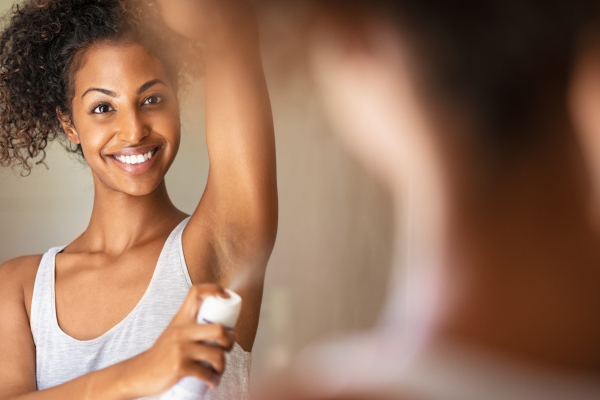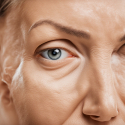- Europa
-
- Amstetten(7)
- Bad Schallerbach(1)
- Baden(4)
- Berg(1)
- Braunau am Inn(5)
- Bregenz(3)
- Bruck an der Mur(1)
- Graz(4)
- Hartberg(1)
- Innsbruck(5)
- Kemmelbach(1)
- Kitzbühel(4)
- Klagenfurt(5)
- Krems an der Donau(1)
- Kufstein(5)
- Leibnitz(1)
- Lienz(1)
- Liezen(1)
- Linz(5)
- Oetz(1)
- Punitz(1)
- Radstadt(1)
- Salzburg(5)
- St Polten(2)
- Steiermark(1)
- Steyr(1)
- Steyregg (1)
- Traun(3)
- Vienna(26)
- Villach(5)
- Völkermarkt(1)
- Wels(5)
- Wien(1)
- Wiener Neustadt(4)
-
- Aalst(1)
- Aarschot(2)
- Affligem(1)
- Anderlecht(5)
- Antwerp(11)
- Antwerpen(1)
- Arlon(6)
- Ath(2)
- Aubange(5)
- Bastogne (2)
- Blankenberge (1)
- Bruges(5)
- Brussels(15)
- Charleroi(5)
- Deinze(3)
- Dendermonde(1)
- Diest(2)
- Etterbeek(5)
- Geel(1)
- Genk(5)
- Gent(6)
- Geraardsbergen(1)
- Grimbergen (2)
- Hasselt(5)
- Heusden- Zolder(2)
- Ieper(1)
- Izegem(1)
- Knokke(4)
- Kortrijk(2)
- La Louviere(2)
- Leuven(5)
- Liege(4)
- Limburg(4)
- Lommel(1)
- Mortsel(1)
- Oostende(1)
- Turnhout(1)
-
- Chelyabinsk(1)
- Dubna(4)
- Gelendzhik(1)
- Irkutsk(1)
- Kaliningrad(1)
- Kazan(4)
- Krasnodar(3)
- Krasnoyarsk(1)
- Maykop(1)
- Moscow(50)
- Nizhny Novgorod(4)
- Novosibirsk(1)
- Omsk(1)
- Penza(1)
- Rostov-on-Don(2)
- Saint Petersburg(13)
- Samara(1)
- Saratov(1)
- Serpukhov (2)
- Sevastopol(3)
- Sochi(5)
- Stavropol(1)
- Surgut(1)
- Tyumen(2)
- Ufa(2)
- Vladivostok(3)
- Yekaterinburg (11)
-
- Alicante(8)
- Barcelona(113)
- Benalmadena(1)
- Benidorm(7)
- Castellón de la Plana(1)
- Denia(1)
- Estepona(1)
- Fuengirola (3)
- Ibiza(49)
- Jerez de la Frontera(1)
- Lanzarote(1)
- Las Palmas de Gran Canaria(5)
- Madrid(57)
- Malaga(9)
- Marbella(48)
- Murcia(1)
- Oviedo(1)
- Palma de Mallorca(48)
- Puerto Banus(3)
- Seville(1)
- Tarragona(1)
- Tenerife(7)
- Torrevieja(3)
- Valencia(9)
- Vigo(1)
- Zaragoza(1)
- Worldwide
Choosing the Right Deodorant for Effective Skin Care
 A deodorant is a staple in daily grooming routines. How can you ensure you choose a product that provides dependable protection while also being mindful of your skin? Let's explore some common myths and facts.
A deodorant is a staple in daily grooming routines. How can you ensure you choose a product that provides dependable protection while also being mindful of your skin? Let's explore some common myths and facts.Myth 1: Natural deodorants are less effective than traditional ones
Fact: Natural deodorants feature gentle formulas derived from nature, offering skin care without irritation. They contain minimal potentially harmful chemicals.
Natural deodorants effectively mask odors without blocking sweat glands, allowing the body to sweat naturally. They are free from aluminum, alcohol, parabens, synthetic fragrances, and dyes.
Myth 2: Using deodorant disrupts the normal function of sweat glands and natural perspiration levels
Fact: Deodorants do not block sweat glands or reduce perspiration. They usually manage odor through antibacterial ingredients and skin care components. However, the effect of a deodorant depends on its formulation: deodorants containing aluminum salts can block sweat glands, while those with natural ingredients and clean formulas do not.
Deodorants do not alter the body's natural perspiration levels. They control sweat and prevent bacteria from causing unpleasant odors.
Myth 3: Applying a large amount of deodorant ensures better results
Fact: Using more deodorant does not increase its effectiveness. A thin, evenly distributed layer is sufficient.
It is generally recommended to apply deodorant once a day. Application frequency can be increased if needed, especially during physical activity. Always follow the product's instructions.
Myth 4: Deodorant is a universal product, so there's no need to choose one individually
Fact: When selecting a deodorant, it's important to consider your skin type:
Oily skin: Opt for products with mattifying effects or minimal oil content.
Sensitive skin: Choose mild formulas with natural ingredients. Avoid deodorants with synthetic fragrances or harsh chemicals that may cause irritation.
Dry skin: Look for deodorants with moisturizing ingredients like natural oils to maintain healthy skin pH and prevent irritation.
Different skin types may react differently to various products, so it's crucial to observe your skin's response and consult a dermatologist if irritation or allergic reactions occur.
Myth 5: Active ingredients in deodorants are not harmful to the skin
Fact: Deodorants should contain safe ingredients to avoid irritation and allergic reactions.
Some products may include ingredients that can be potentially harmful or cause side effects, such as:
Aluminum: Can clog sweat glands and cause skin irritation.
Parabens: Synthetic preservatives that may lead to skin hypersensitivity.
Phthalates: Chemicals that disrupt hormonal balance.
Synthetic fragrances: Can cause skin irritation or allergic reactions in some people.
Alcohol: May strip the skin of its natural moisture, leading to redness, irritation, and dryness.
Myth 6: Probiotics in deodorants are unusual
Fact: Adding probiotics to deodorants offers several benefits. Probiotics are natural enzymes that restore the skin's microbiome, maintaining a healthy level of bacteria often disrupted by excessive sweating and activity. They help reduce inflammation, support the skin's barrier function, and improve overall skin condition.









